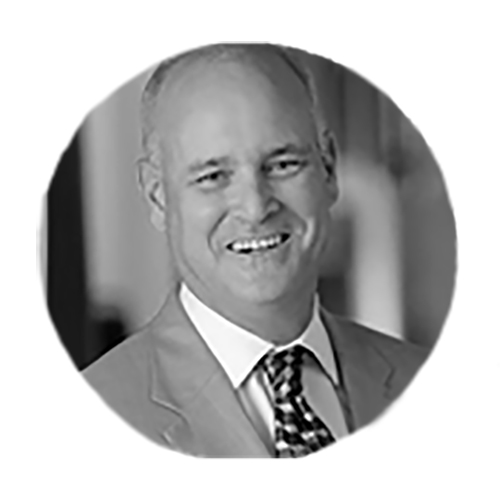Four Habits of Highly Successful Advisors: Part Four



My colleague Ryan Krystopowicz and I recently co-wrote and posted to the WisdomTree website a white paper “think piece” entitled, “Four Habits of Highly Successful Advisors.”1 We are now “serializing” that white paper into four blogs.
In part 1, we discussed how to appropriately evaluate and build enterprise value by focusing on scale, efficiency and profitability. In part 2, we focused on the importance of client segmentation and “niche” branding. In part 3, we focused on the importance of optimizing fees and taxes—the two things any advisor has the most control over.
Here in this final segment, we focus on how the use of outsourcing can drive scale, efficiency and profitability in your practice by allowing you to deliver institutional-quality investment solutions and boutique-quality client service.
Habit Four: Active Adoption and Employment of Third-Party Model Portfolios
Many advisors believe one of their primary value propositions is the construction and management of client investment portfolios.
Nothing wrong with that. But many advisors are increasingly seeking to outsource some or all of that function to a qualified model manager—what the institutional world calls an “outsourced CIO.”
These advisors are choosing to focus their activities on their core competencies—niche branding and segmentation, financial and estate planning, family governance, business development and relationship management—and outsourcing at least some portion of the investment management function as a way of improving productivity, efficiency and (potentially) performance.
It comes down to partnering with outsourcing firms like WisdomTree to deliver institutional-quality investment solutions so the advisor can focus on delivering core competencies and boutique-quality value-added services.
Our own market research indicates that many advisors want to be involved in the portfolio management function for their clients, and view that capability as a primary value proposition. We don’t second-guess that perception, but we do point out that end clients are much more accepting of third-party models than many advisors believe.
Other industry surveys support this, and point out the potential benefits of outsourcing:
• Advisors using third-party model portfolios are realizing four times the asset growth and nine times the productivity growth of advisors who do not.2 We are not seeking to replace a firm’s investment solution; we position ourselves as an extension of already in-house capabilities.
• Third-party model portfolios have grown in AUM to an excess of $5 trillion, as more advisors realize the potential benefits of outsourcing.3
Focusing on the Left Side of the Decimal Point
In a highly volatile, potentially low-return market regime, advisors need to think differently about what “adding value” means in constructing and managing investor portfolios.
We believe too many advisors spend too much time focusing on investment activities that potentially add value in basis points rather than “handles.” We refer to this phenomenon as “focusing on the right side of the decimal point.”
Advisors who are most successful in growing their practices spend far more time focusing on the “left side” of the decimal point—that is, on those activities that add the most value to investors’ financial lives. In terms of actual long-term value to a client portfolio, for example, we believe the “hierarchy of added value” might look something like this:
1. Estate planning
2. Asset allocation
3. Cost and tax management
4. Institutional-quality portfolio management
Summarizing our “Four Habits of Highly Successful Advisors” illustrates how advisors can incorporate this“hierarchy of added value, as well as address the specific trends and objectives of increasingly sophisticated investors:
1. To increase enterprise value, focus on scale, efficiency and profitability, not AUM or AUA
2. Segmentation and finding your niche
3. Optimizing taxes and active management fees
4. Active adoption and employment of third-party model portfolios
Of course, there are advisors who enjoy significant success without employing any of these ideas, or perhaps just a few of them. But, in our experience, advisors who do employ these best practices are enjoying faster growth, improved operational efficiency, enhanced client advocacy and increased profitability—and therefore increased enterprise value.
Not a bad outcome.
For those interested in learning about the rest of the habits, please check out the other three blogs in the series and make sure to read the entire white paper: “Four Habits of Highly Successful Advisors.”
For financial professionals interested in learning more about WisdomTree’s Portfolio & Growth Solutions program, click here.
Contact Us
Important Risks Related to this Article
Investors and their advisors should consider the investment objectives, risks, charges and expenses of the funds included in any Model Portfolio carefully before investing. This and other information can be obtained in the Fund’s prospectus by visiting WisdomTree.com for WisdomTree Funds. Visit the applicable third-party fund family website for third-party funds. Please read the prospectus carefully before you invest. WisdomTree Asset Management, Inc., does not endorse and is not responsible or liable for any content or other materials made available by other ETF sponsors.
There are risks associated with investing, including the possible loss of principal. Foreign investing involves currency, political and economic risk. Funds focusing on a single country, sector and/or funds that emphasize investments in smaller companies may experience greater price volatility. Investments in emerging markets, real estate, currency, fixed income and alternative investments include additional risks. Please see the prospectus for a discussion of risks.
For retail investors: WisdomTree’s Model Portfolios are not intended to constitute investment advice or investment recommendations from WisdomTree. Your investment advisor may or may not implement WisdomTree’s Model Portfolios in your account. The performance of your account may differ from the performance shown for a variety of reasons, including but not limited to: Your investment advisor, and not WisdomTree, is responsible for implementing trades in the accounts; differences in market conditions; client-imposed investment restrictions; the timing of client investments and withdrawals; fees payable; and/or other factors. WisdomTree is not responsible for determining the suitability or appropriateness of a strategy based on WisdomTree’s Model Portfolios. WisdomTree does not have investment discretion and does not place trade orders for your account. This material has been created by WisdomTree and the information included herein has not been verified by your investment advisor and may differ from information provided by your investment advisor. WisdomTree does not undertake to provide impartial investment advice or give advice in a fiduciary capacity. Further, WisdomTree receives revenue in the form of advisory fees for our exchange-traded funds and management fees for our collective investment trusts.
For financial advisors: WisdomTree Model Portfolio information is designed to be used by financial advisors solely as an educational resource, along with other potential resources advisors may consider, in providing services to their end clients. WisdomTree’s Model Portfolios and related content are for information only and are not intended to provide, and should not be relied on for, tax, legal, accounting, investment or financial planning advice by WisdomTree, nor should any WisdomTree Model Portfolio information be considered or relied upon as investment advice or as a recommendation from WisdomTree, including regarding the use or suitability of any WisdomTree Model Portfolio, any particular security or any particular strategy.
Neither WisdomTree Investments, Inc., nor its affiliates, nor Foreside Fund Services, LLC, nor its affiliates provide tax advice. All references to tax matters or information provided in this material are for illustrative purposes only and should not be considered tax advice and cannot be used for the purpose of avoiding tax penalties. Investors seeking tax advice should consult an independent tax advisor.
This material contains the opinions of the authors, which are subject to change, and should not be considered or interpreted as a recommendation to participate in any particular trading strategy, or deemed to be an offer or sale of any investment product, and it should not be relied on as such. There is no guarantee that any strategies discussed will work under all market conditions. This material represents an assessment of the market environment at a specific time and is not intended to be a forecast of future events or a guarantee of future results. This material should not be relied upon as research or investment advice regarding any security in particular. The user of this information assumes the entire risk of any use made of the information provided herein. Unless expressly stated otherwise, the opinions, interpretations or findings expressed herein do not necessarily represent the views of WisdomTree or any of its affiliates.


Ryan Krystopowicz joined WisdomTree in March 2016 and serves as a Product Specialist, ETF Model Portfolios. He is a leading voice in the content and commercialization of WisdomTree’s Model Portfolio Research Study & Model Adoption Center. Ryan also contributes to the commercial success of WisdomTree’s Model Portfolio offerings by supporting Distribution and the management of host platforms. His passion for third-party model portfolios and investment outsourcing was cultivated during his tenure at a Registered Investment Advisor where he took on a variety of roles within research and operations. Ryan received a degree from Loyola University of Maryland and is a CFA charterholder.

